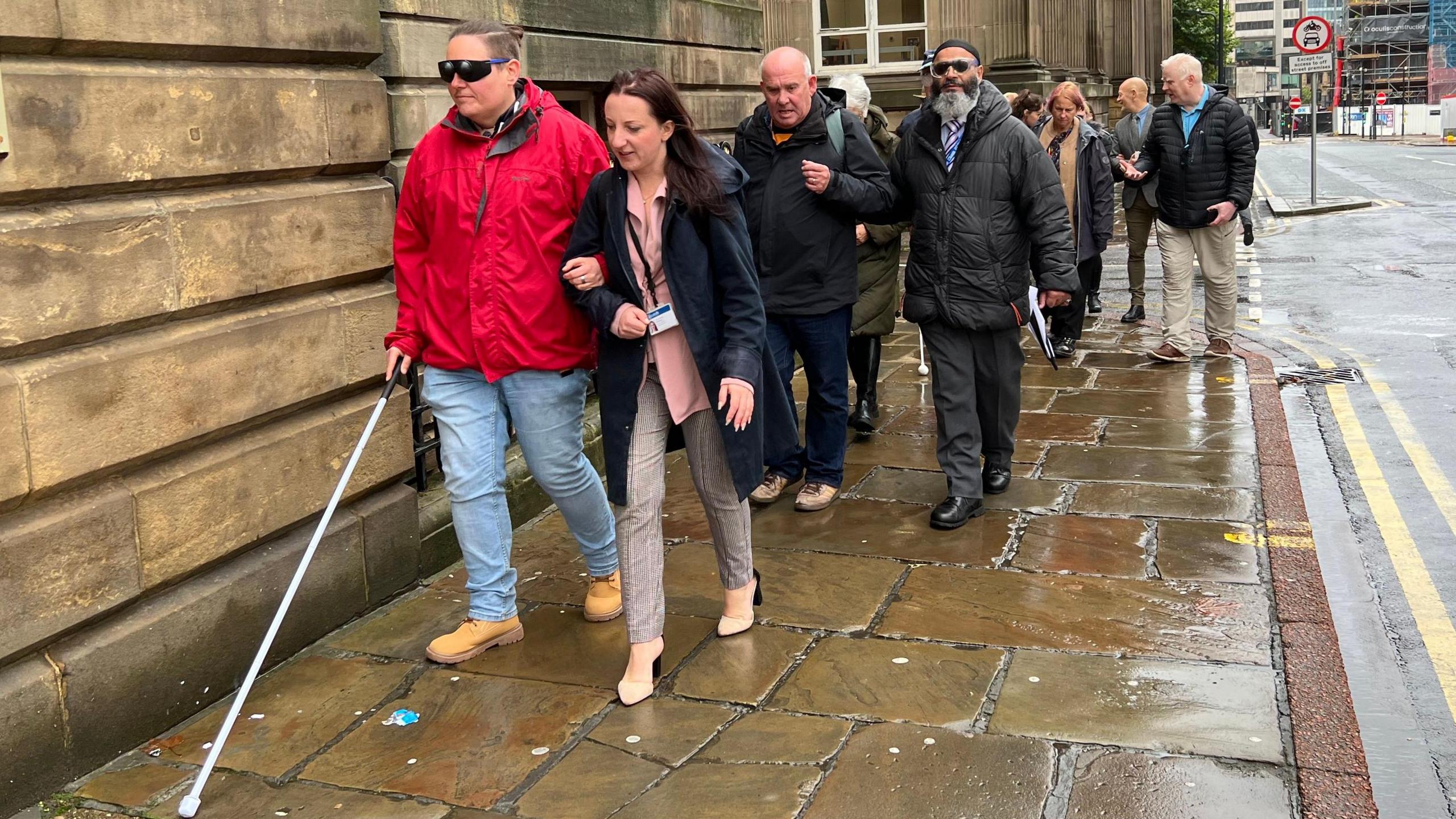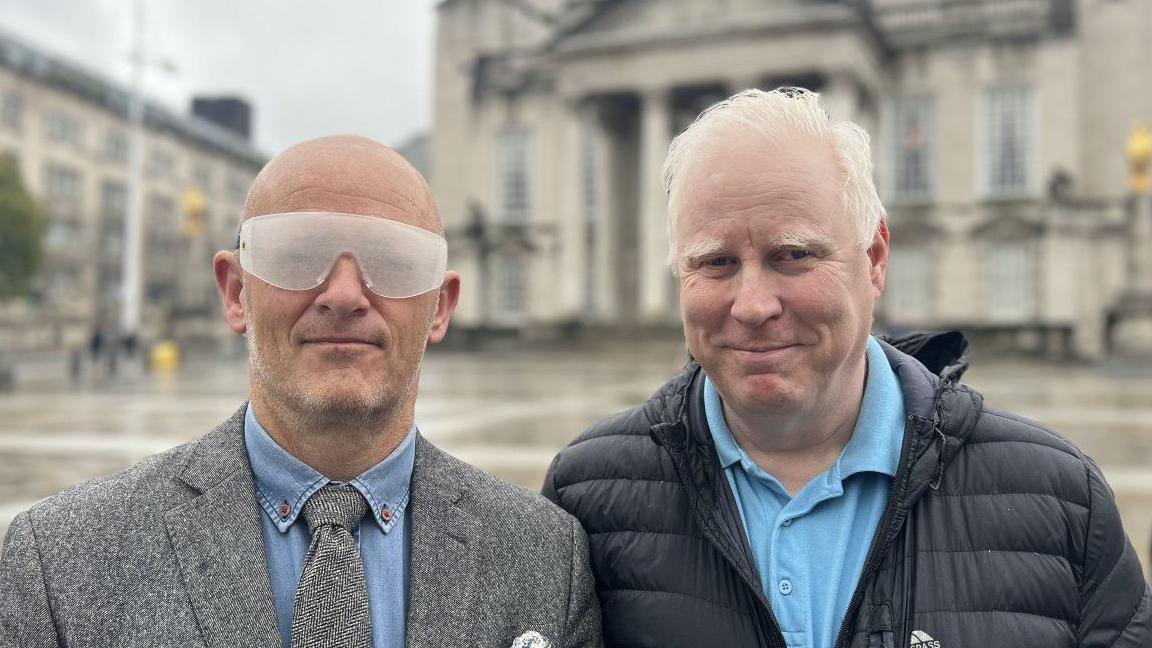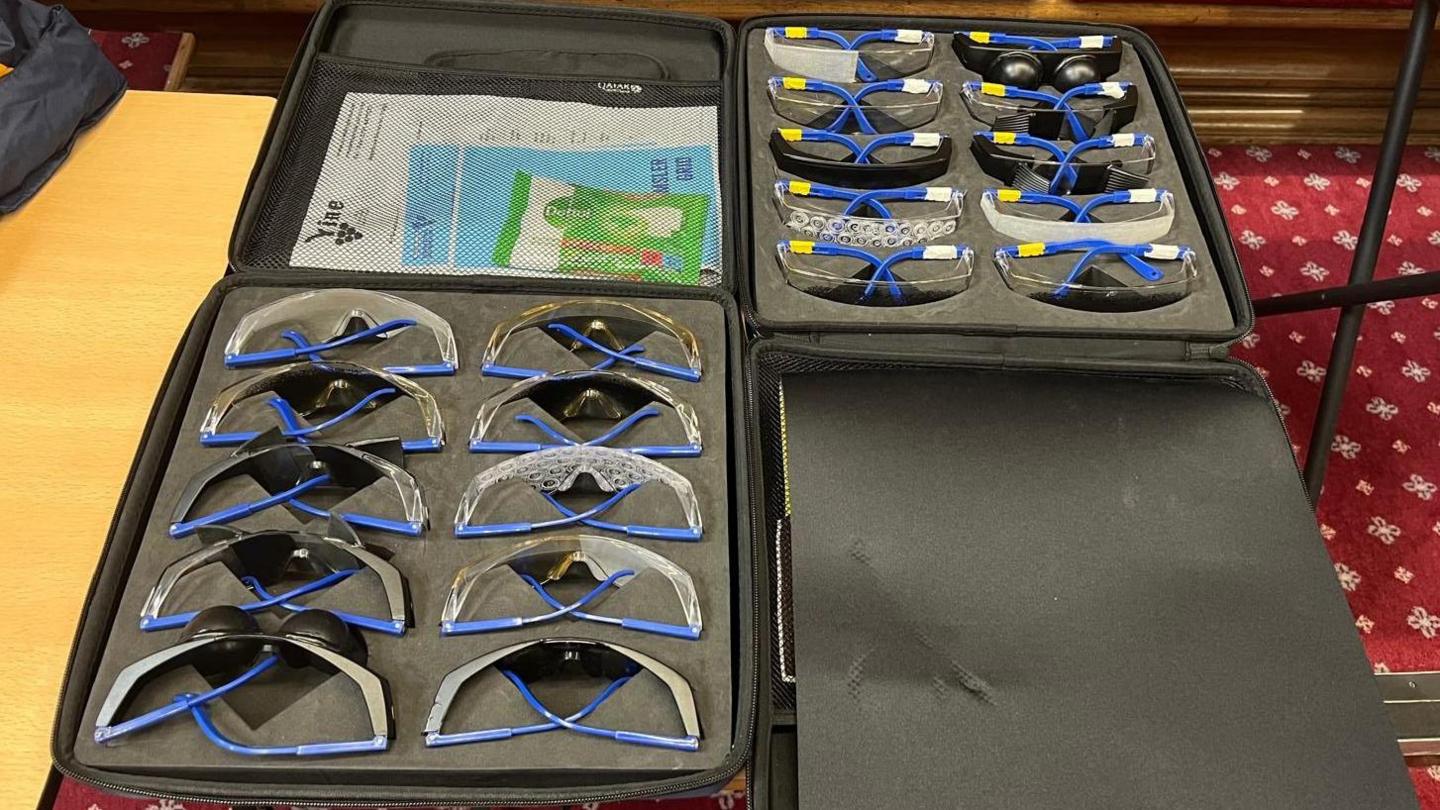City streets 'shocking and scary' for blind people

Councillors in Leeds used special spectacles to simulate sight conditions
- Published
Leeds city centre is "shocking" and "scary" for people with visual impairments to navigate, according to councillors.
City councillors took to the streets wearing "sim specs" - spectacles that simulate sight conditions.
The West Yorkshire Sight Loss Council organised the event to raise awareness of the challenges faced by partially sighted and blind people.
A Leeds City Council spokesperson said as part of the authority's "commitment to inclusivity", disability access groups had been consulted on recent changes to the layout of streets.
"Floating" bus stops were among the issues encountered by the councillors during the tour.
Also known as a bus bypass, floating bus stops are separated from the main pavement by a cycle path.
The paths run behind the stops, forcing people to cross an active cycle lane to flag down their bus.
'Fear of going out'
Iain Mitchell, senior engagement manager at the West Yorkshire Sight Loss Council, was born with albinism, nystagmus and photosensitivity.
He said it was "important" council members "took a walk" in his shoes and hoped this would inform future planning decisions.
"Street furniture and obstacles really do impact on the movement and confidence of blind and partially sighted people accessing their local communities," he said.
“The risk of falling and tripping over obstacles can create a fear of going out to do the everyday things, including to see friends, go to work or to the shops.
"We want to be able to access Leeds city centre without fear and enjoy the wonderful city that we are proud of."
Sight Loss Councils, funded by the Thomas Pocklington Trust, are regional groups led by blind and partially sighted people.

Councillor Stewart Golton was guided around Leeds by Iain Mitchell
Councillor Stewart Golton was among those taking part in the exercise.
He wore sim specs replicating tunnel vision, which means peripheral sight is blacked out.
"I felt quite anxious when the surface changed," he said.
"I wasn't quite sure if it was indicating I was coming to a crossing or a pothole."
Councillor Hannah Bithell, who chairs the infrastructure, investment and inclusive growth scrutiny board, described the feeling of walking with diminished vision as "daunting".
"I always think of the pavements here as pretty well maintained, it is quite new, but it is a shock and a bit scary.
"I honestly feel like anything could whack me in the side at any moment."

Sim specs replicate sight conditions including tunnel vision
Anna Tylor, chair at the Royal National Institute of Blind People, praised the councillors for taking part.
She told the BBC: "I really think that kind of immersive experience, there's nothing like it, to give policy makers a taste of what it's like to navigate the city centre if you can't see.
"I hope it really informs the way transport systems are planned."
A spokesperson for Leeds City Council said: “The Leeds Public Transport Investment Programme was developed with a wide range of community groups.
"This included the Disability Hub, Leeds Society for the Deaf and Blind, and the Physical and Sensory Impairment Network.
“As part of our commitment to inclusivity, the Disability Hub and the Access and Use-Ability Group had the opportunity to review and comment on a range of materials, such as paviours, drainage features, crossings, kerbs, and cycle tracks."
Listen to highlights from West Yorkshire on BBC Sounds, catch up with the latest episode of Look North or tell us a story you think we should be covering here, external.